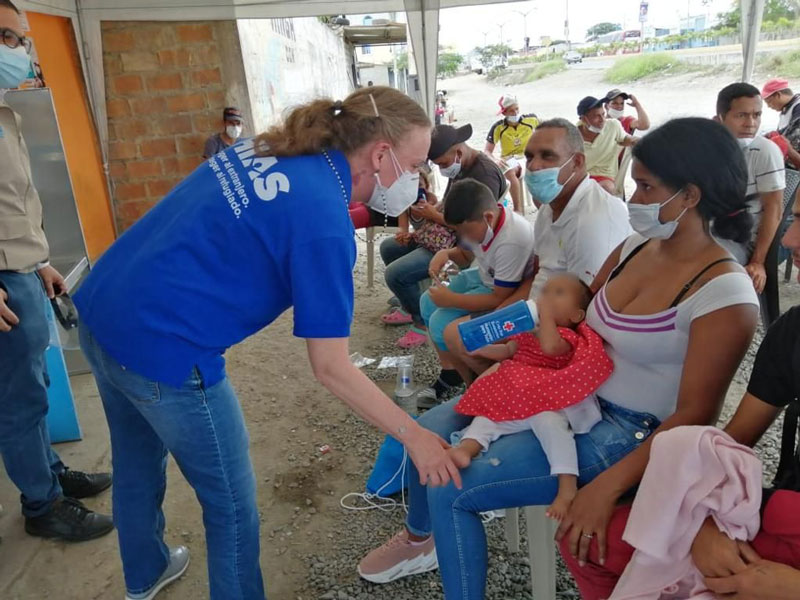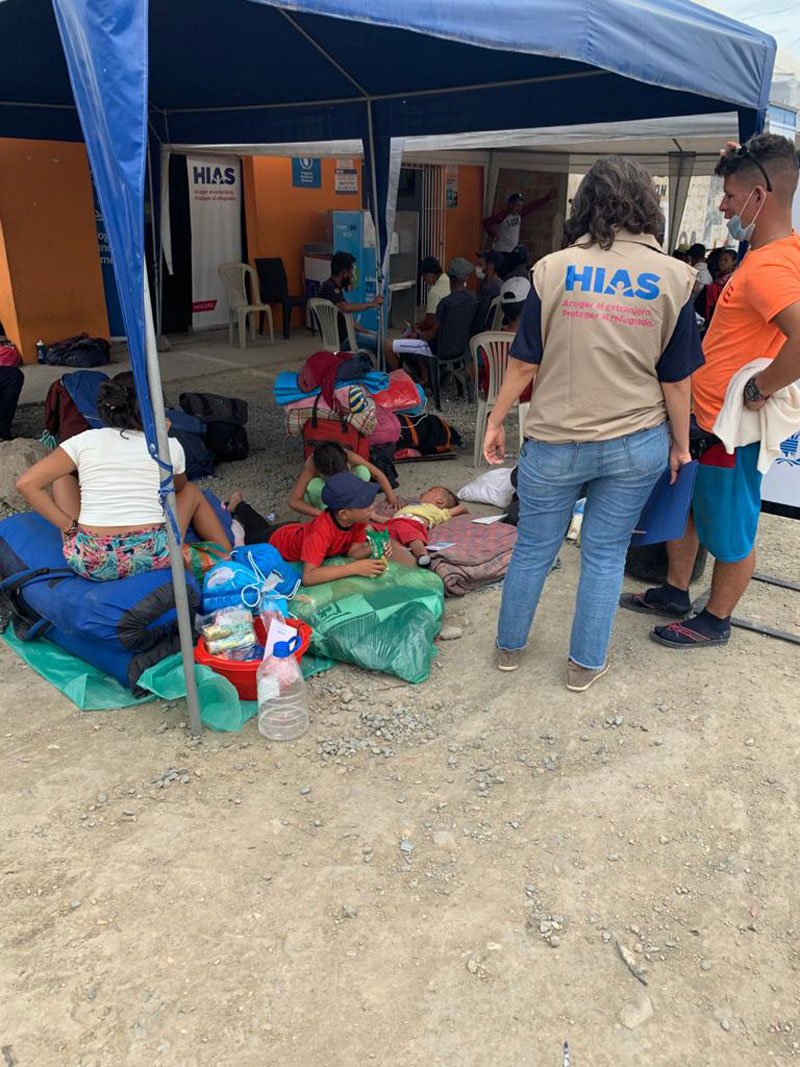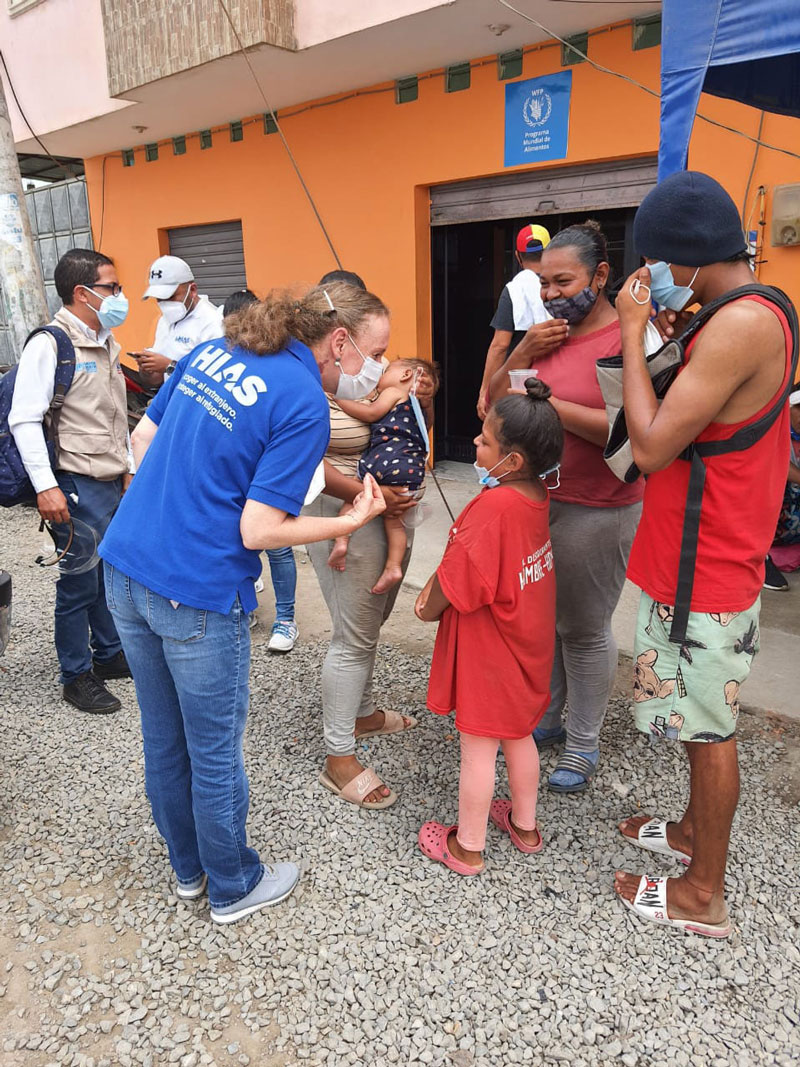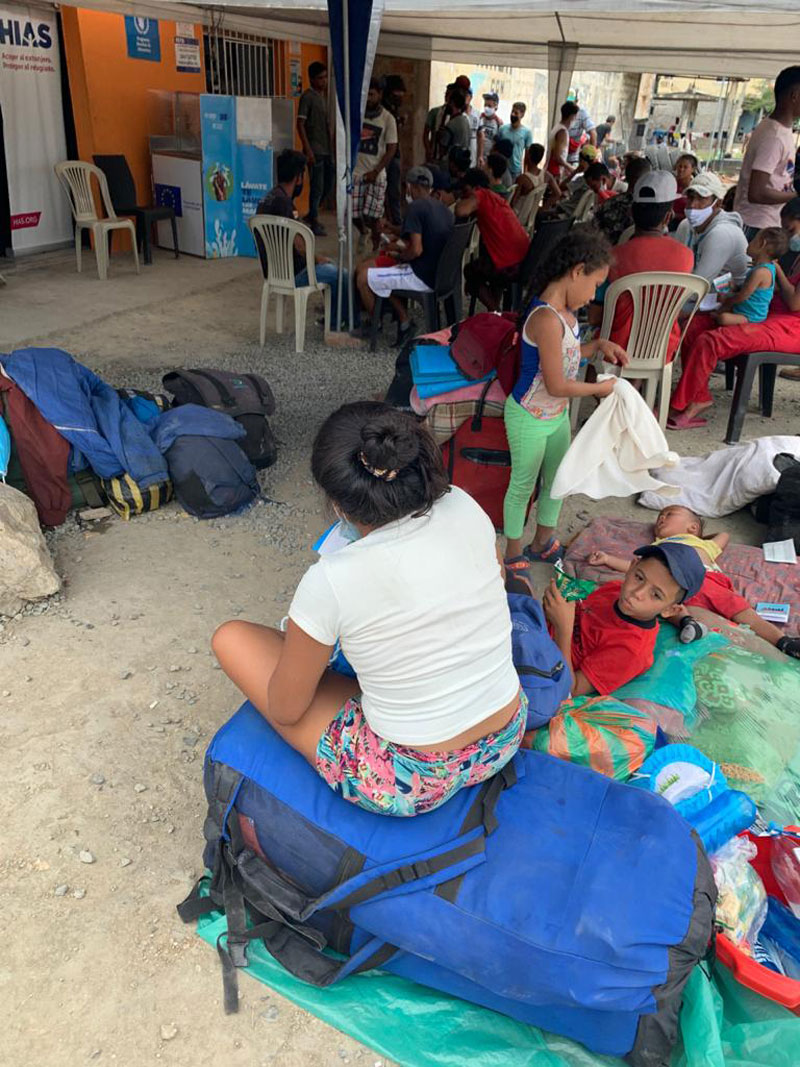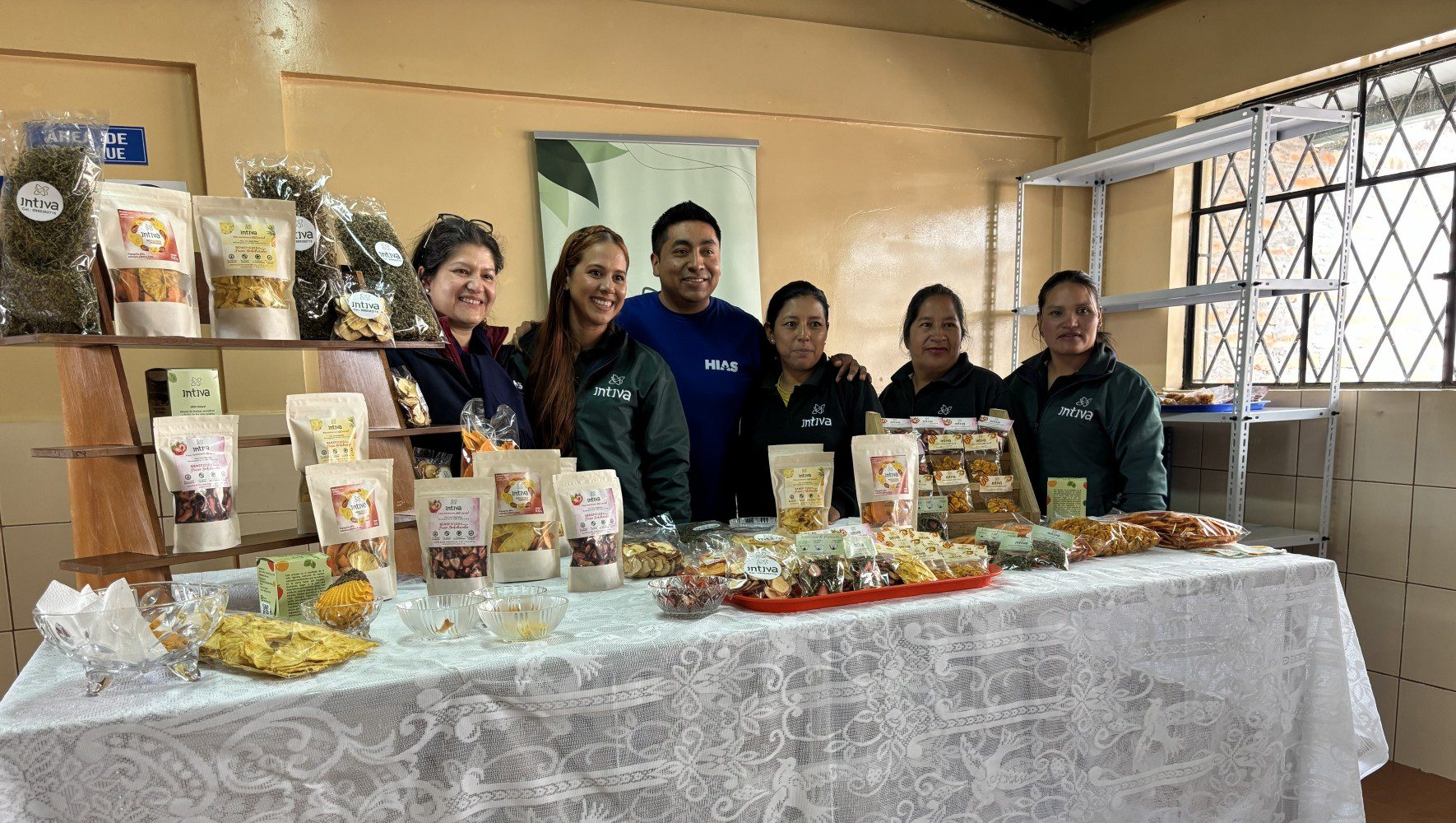HIAS Responds to Emergency in Huaquillas
By Sharon Samber, HIAS.org
Feb 23, 2021
HIAS Ecuador is responding to an emergency at the country's southern border with Peru.
Hundreds of Venezuelan refugees and migrants are stuck in the town of Huaquillas with nowhere to go because the border is closed, as the Peruvian government said it was trying to stop migration to prevent the spread of the COVID-19 virus. People are sleeping in the streets and under bleachers outside a stadium with hardly any COVID-19 protections, unsure of what will happen next.
The situation has worsened over the last few weeks, after Peru sent its military to patrol the border on Jan. 26. As many as 400 migrants are now in Huaquillas, a border town in the province of El Oro. A bridge that goes over the Zarumilla River connects Huaquillas with the Peruvian town of Aguas Verdes, but the bridge and all formal crossings are closed.
HIAS has an office in Huaquillas and has also set up a special area on the main street to provide food assistance with the support of World Food Programme, as well as counseling. Refugees can also receive referrals for other services. The small town is overwhelmed by the number of refugees and migrants, and the main issues facing the Venezuelans are food, sanitation, and shelter. HIAS Ecuador helped conduct a rapid needs-assessment report along with other partners in the interagency group GTRM, including UNHCR, to determine how best to help.
Sabrina Lustgarten, the director of HIAS Ecuador, visited Huaquillas and described the situation as “heartbreaking.”
“There are a lot of children, a lot of families who don’t have anything,” she said. “You can see the vulnerability and desperation.”
Lustgarten met a man who had walked from Venezuela with his one-year-old son. Standing with a baby bottle in his hand, he explained how difficult it was to carry his son all the time, so he would have to walk back to Venezuela and leave his son with family and maybe try again to get to Peru. HIAS helped the man get a stroller and find a place to stay before he started his return.
HIAS is also distributing masks and trying to enforce social distancing, but Lustgarten admitted such precautions are not a priority for refugees living day-to-day.
“You see their faces with no expression,” she said. “They have no hope in this moment.”
